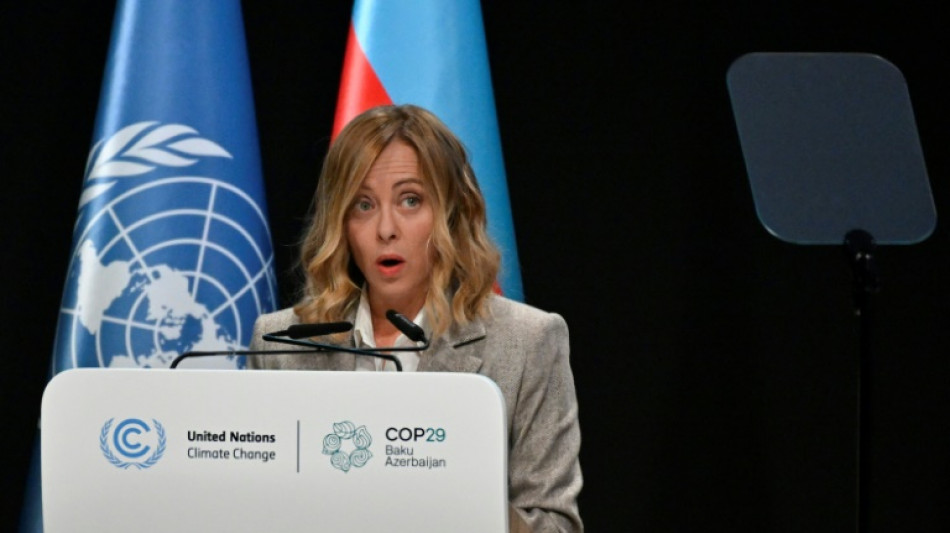
-
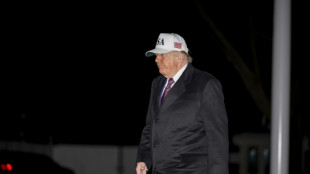 Trump has options on Iran, but first must define goal
Trump has options on Iran, but first must define goal
-
Paris FC's Ikone stuns PSG to knock out former club from French Cup

-
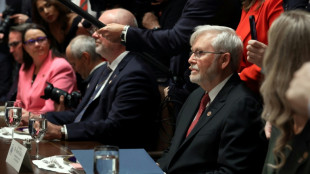 Australia's ambassador to US leaving post, marked by Trump rift
Australia's ambassador to US leaving post, marked by Trump rift
-
Slot angered by 'weird' Szoboszlai error in Liverpool FA Cup win

-
 Szoboszlai plays hero and villain in Liverpool's FA Cup win
Szoboszlai plays hero and villain in Liverpool's FA Cup win
-
Hawaii's Kilauea volcano puts on spectacular lava display
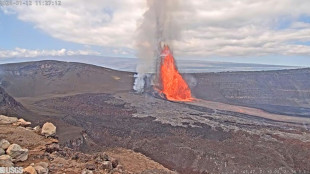
-
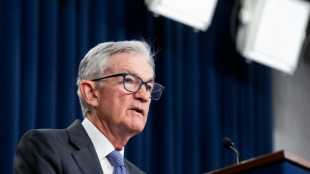 US stocks at records despite early losses on Fed independence angst
US stocks at records despite early losses on Fed independence angst
-
Koepka rejoins PGA Tour under new rules for LIV players

-
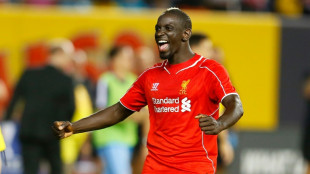 Ex-France, Liverpool defender Sakho announces retirement
Ex-France, Liverpool defender Sakho announces retirement
-
Jerome Powell: The careful Fed chair standing firm against Trump
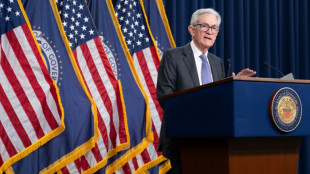
-
 France scrum-half Le Garrec likely to miss start of Six Nations
France scrum-half Le Garrec likely to miss start of Six Nations
-
AI helps fuel new era of medical self-testing

-
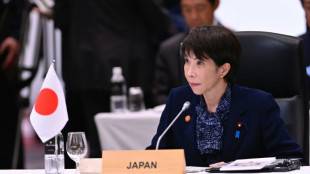 Leaders of Japan and South Korea meet as China flexes muscles
Leaders of Japan and South Korea meet as China flexes muscles
-
Trump sets meeting with Venezuelan opposition leader, Caracas under pressure
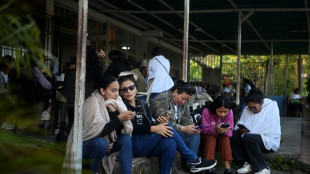
-
 Australia captain Alyssa Healy to retire from cricket
Australia captain Alyssa Healy to retire from cricket
-
US 'screwed' if Supreme Court rules against tariffs: Trump

-
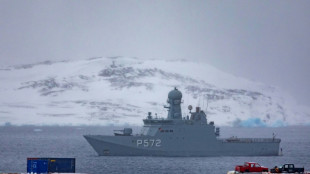 NATO, Greenland vow to boost Arctic security after Trump threats
NATO, Greenland vow to boost Arctic security after Trump threats
-
Israel to take part in first Eurovision semi-final on May 12

-
 How Alonso's dream Real Madrid return crumbled so quickly
How Alonso's dream Real Madrid return crumbled so quickly
-
Ex-Fed chiefs, lawmakers slam US probe into Jerome Powell
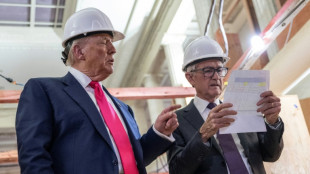
-
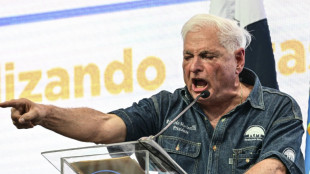 Former Panama leader on trial over mega Latin America corruption scandal
Former Panama leader on trial over mega Latin America corruption scandal
-
Trump keeping Iran air strikes on the table: White House
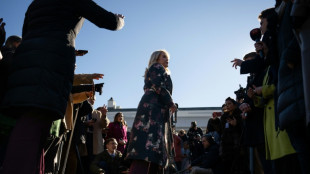
-
 Paramount sues in hostile bid to buy Warner Bros Discover
Paramount sues in hostile bid to buy Warner Bros Discover
-
Ugandan opposition leader Bobi Wine warns of protests if polls rigged
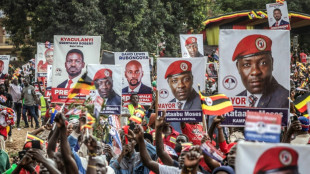
-
 Airbus delivers more planes in 2025
Airbus delivers more planes in 2025
-
Alonso leaves Real Madrid, Arbeloa appointed as coach

-
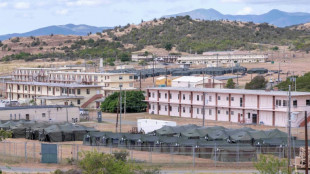 UK pays 'substantial' compensation to Guantanamo inmate: lawyer
UK pays 'substantial' compensation to Guantanamo inmate: lawyer
-
Iran protest toll mounts as government stages mass rallies
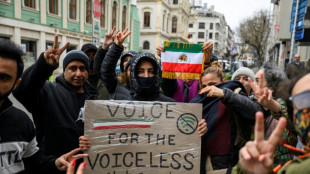
-
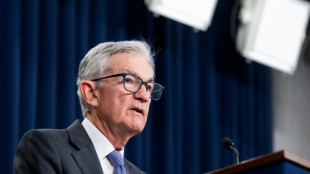 Gold hits record high, dollar slides as US targets Fed
Gold hits record high, dollar slides as US targets Fed
-
Cuba denies being in talks with Trump on potential deal
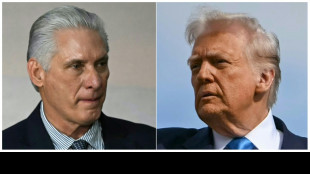
-
 Scientists reveal what drives homosexual behaviour in primates
Scientists reveal what drives homosexual behaviour in primates
-
Venezuela releases more political prisoners as pressure builds

-
 15,000 NY nurses stage largest-ever strike over conditions
15,000 NY nurses stage largest-ever strike over conditions
-
Rosenior plots long Chelsea stay as Arsenal loom

-
 Zuckerberg names banker, ex-Trump advisor as Meta president
Zuckerberg names banker, ex-Trump advisor as Meta president
-
Reza Pahlavi: Iran's ex-crown prince dreaming of homecoming

-
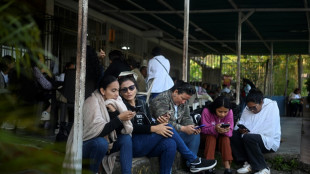 Venezuela releases more political prisoners
Venezuela releases more political prisoners
-
Kenya's NY marathon champ Albert Korir gets drug suspension
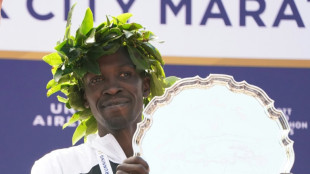
-
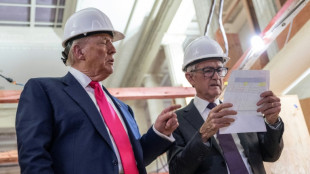 US prosecutors open probe of Fed chief, escalating Trump-Powell clash
US prosecutors open probe of Fed chief, escalating Trump-Powell clash
-
Russian captain in fiery North Sea crash faces UK trial

-
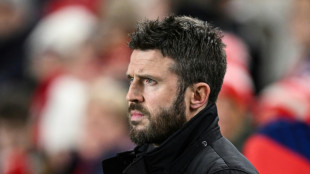 Carrick is frontrunner for interim Man Utd job: reports
Carrick is frontrunner for interim Man Utd job: reports
-
Iran government stages mass rallies as alarm grows over protest toll
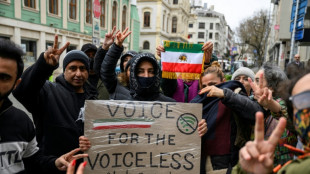
-
 Variawa leads South African charge over Dakar dunes
Variawa leads South African charge over Dakar dunes
-
Swiss inferno bar owner detained for three months

-
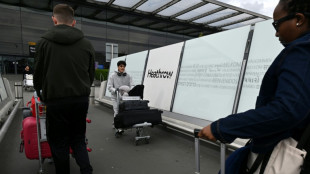 Heathrow airport sees record high annual passenger numbers
Heathrow airport sees record high annual passenger numbers
-
Georgia jails ex-PM for five years amid ruling party oustings
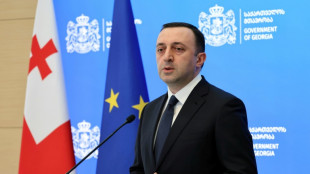
-
 Kyiv buries medic killed in Russian drone strike
Kyiv buries medic killed in Russian drone strike
-
Israel revokes French researcher's travel permit

-
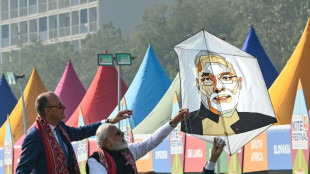 India and Germany seek to boost defence industry ties
India and Germany seek to boost defence industry ties
-
French coach and football pundit Rolland Courbis dies at 72
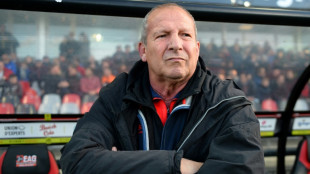

Stark warning on emissions as leaders divided at COP29
Global leaders offered competing visions on how to tackle climate change at UN-led talks on Wednesday as a new report warned that the world must reach carbon neutrality much sooner than planned.
Planet-warming carbon dioxide emissions from oil, gas and coal rose to record highs this year, according to preliminary research from an international network of scientists at the Global Carbon Project.
The report came as leaders gathered in Azerbaijan for COP29 climate talks aimed at reaching a deal to boost funding for poorer nations so they can adapt to climate shocks and transition to cleaner energy.
The research found that to meet the Paris agreement's ambitious goal of limiting warming to 1.5 degrees Celsius, the world now needs to reach net-zero CO2 emissions by the late 2030s -- instead of 2050.
"This is what the presidency has been promoting since the beginning of this year -- the time window is narrowing, shrinking -- and we need to act urgently," Yalchin Rafiyev, Azerbaijan's lead negotiator for COP29, told AFP.
"There are still possibilities for keeping 1.5C within reach", and striking a deal on climate finance "will definitely pave the way for us to realise this opportunity".
The warning comes with growing concern about the future of global climate action after the election of Donald Trump, who has vowed to again pull the United States out of the Paris agreement after taking over the presidency in January.
Some leaders in Baku defended fossil fuels during two days of speeches, while others from countries plagued by climate disasters warned that they were running out of time.
Some of the strongest words came from Albanian Prime Minister Edi Rama, who complained that "our speeches full of good words about climate change, change nothing".
Rama skewered the many leaders who skipped this year's event, saying their absences added "insult to injury".
- 'Slower' path -
Italian Prime Minister Giorgia Meloni, meanwhile, urged a "realistic global outlook" that did not prioritise decarbonisation over "our production and social system's sustainability".
"We must protect nature, with man at its core. An approach that is too ideological and not pragmatic on this matter risks taking us off the road to success," the far-right leader said.
"Currently, there is no single alternative to fossil fuel supply."
And Greek Prime Minister Kyriakos Mitsotakis warned that countries "cannot drive ourselves into industrial oblivion".
Those views stood in sharp contrast to the line from countries beset by climate catastrophes and rising sea levels.
Tuvalu's Prime Minister Feleti Penitala Teo insisted that for Pacific island nations like his, "there is simply no time to waste".
He urged countries to "deliver a clear signal that the world is promptly phasing out fossil fuel".
- Money fight -
As leaders spoke, negotiators released a fresh draft deal on finance that includes a raft of options to raise funding but leaves unresolved sticking points that have long delayed an agreement.
Most developing countries favour an annual commitment from wealthy countries of at least $1.3 trillion.
This figure is more than 10 times the $100 billion annually that a small pool of developed countries -- among them the US, the EU and Japan -- currently pay.
Some donors are reluctant to promise large new amounts of public money from their budgets at a time when they face economic and political pressure at home.
They want instead to promise private sector mobilisation, an option NGOs describe as "wishful thinking".
"They always like to look at the private sector as the magic money tree," said Debbie Hillier, global climate policy lead for Mercy Corps.
US climate envoy John Podesta said a deal should include "new contributors" -- code for China, which is not labelled a developed nation despite being the world's second largest economy and largest polluter.
Already buried under debt, developing countries want new aid in the form of grants instead of loans.
Philip Davis, the prime minister of the Bahamas, which is vulnerable to hurricanes, said that small island nations have spent 18 times more on debt repayment than they have received in climate finance.
"The world has found the ability to finance wars, the ability to mobilise against pandemics," Davis said.
"Yet when it comes to addressing the most profound crisis of our time, the very survival of nations, where is that same ability?"
Y.Zaher--SF-PST



